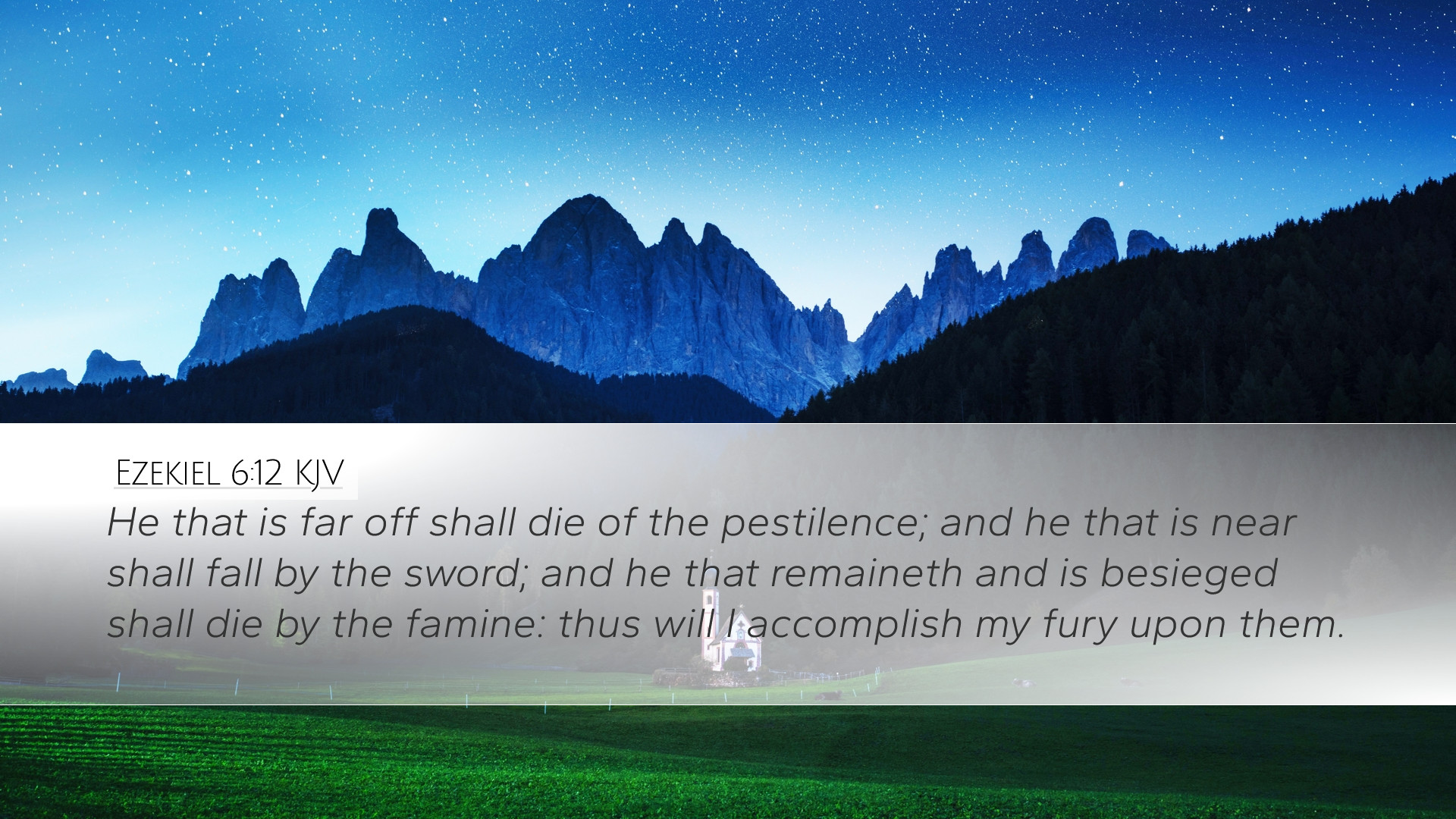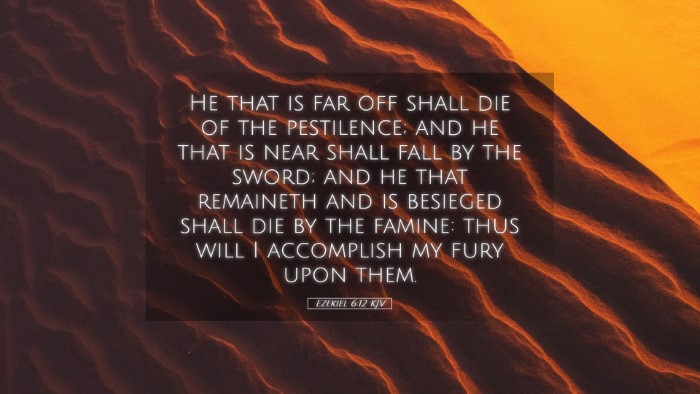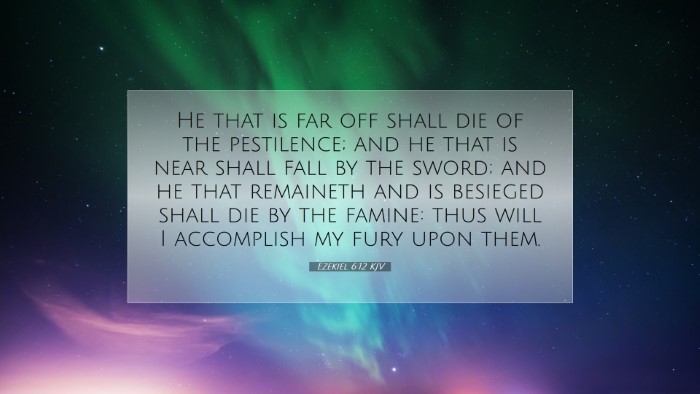Bible Commentary on Ezekiel 6:12
Ezekiel 6:12 states: “He that is far off shall die of the pestilence; and he that is near shall fall by the sword; and he that remaineth and is besieged shall die by the famine: thus will I accomplish my fury upon them.” This verse encapsulates the dire consequences of Israel's unfaithfulness to God.
Contextual Understanding
The book of Ezekiel is set during a pivotal time in Israel’s history, specifically during the Babylonian exile. Ezekiel, having been taken captive, speaks to a people that have turned their backs on Yahweh. His prophetic ministry focuses on the judgment that is to come, the reasons for that judgment, and the future restoration of Israel.
1. Divine Judgment
This verse illustrates different forms of divine judgment. Each means of punishment corresponds to the distance of the sinner from the place of destruction:
- “He that is far off shall die of the pestilence”: This can be interpreted as those who are away from Jerusalem, perhaps in exile or living among foreign nations, exposed to diseases as a part of divine retribution.
- “He that is near shall fall by the sword”: This indicates immediate judgment for those closer to the site of conflict, who are likely to encounter military action directly.
- “He that remaineth and is besieged shall die by the famine”: Those who are trapped in the city will face starvation, highlighting the severity of the siege and the comprehensive nature of the judgment.
2. Theological Insights
Matthew Henry notes that this verse emphasizes God’s sovereignty in executing judgment. Each scenario demonstrates the comprehensive reach of God’s discipline. His fury is fulfilled, whether through disease, violence, or starvation, showcasing His control over providence.
3. The Nature of Sin and Its Consequences
Albert Barnes points to the seriousness with which sin is regarded in Scripture. This passage serves not only as a warning but as an illustration of the ripple effect of sin on a community. The various calamities that befall the people underline how sin leads to isolation from God’s protection.
4. A Call to Repentance
In light of this judgment, Adam Clarke reflects on the necessity for repentance. The vivid depiction of the consequences of disobedience serves as a call to the Israelites to turn back to God before it is too late.
Application for Today
For pastors, students, and theologians, the stark realities presented in Ezekiel 6:12 serve as various lessons:
- Understanding Judgment: The modern church must grasp the gravity of sin in relation to God's character. God’s justice is always coupled with His mercy, yet the consequences of turning away from Him are serious and often disastrous.
- Promoting Repentance: This verse can be a basis for preaching about repentance. Just as Israel faced dire consequences, so can modern believers face similar judgments if they stray from faithfulness to God.
- Seeking Holiness: As Ezekiel’s message echoes through time, it reminds contemporary Christians of their call to holiness and the importance of living a life that is set apart for God’s purposes.
Conclusion
Ezekiel 6:12 confronts us with a stark reality: the seriousness of God’s holiness, love, and justice. As we explore the depths of this passage, we are challenged to reflect on our own lives and the collective responsibility of the church to uphold the truth. The promises of judgment are countered with hope for restoration when true repentance occurs.
In our teaching and preaching, let us remember the weight of this message and strive to lead congregations toward a deeper understanding of God's character, urging them to walk in faithfulness to their Creator.


